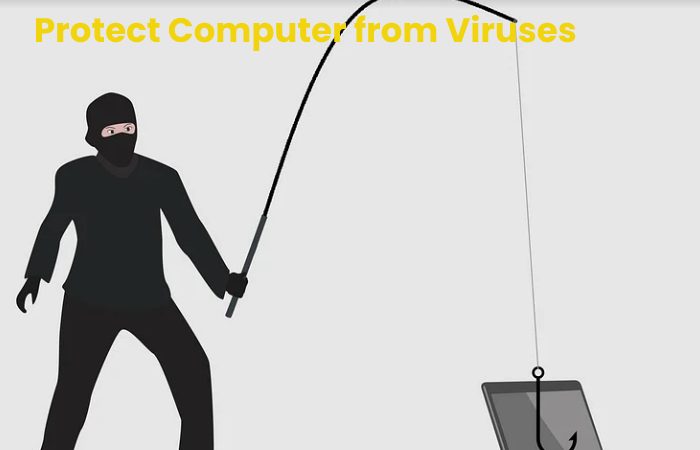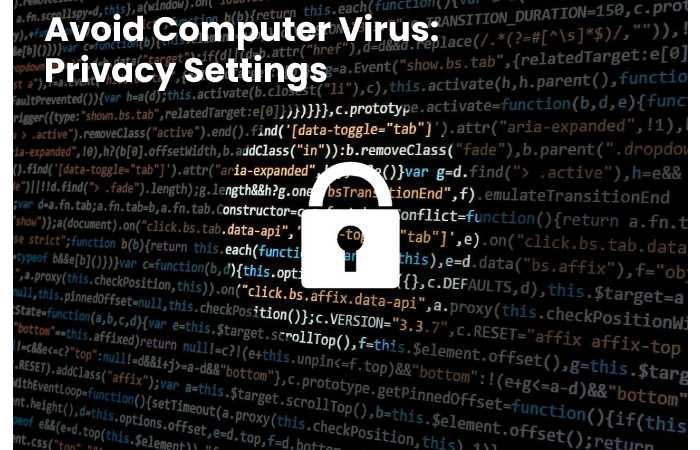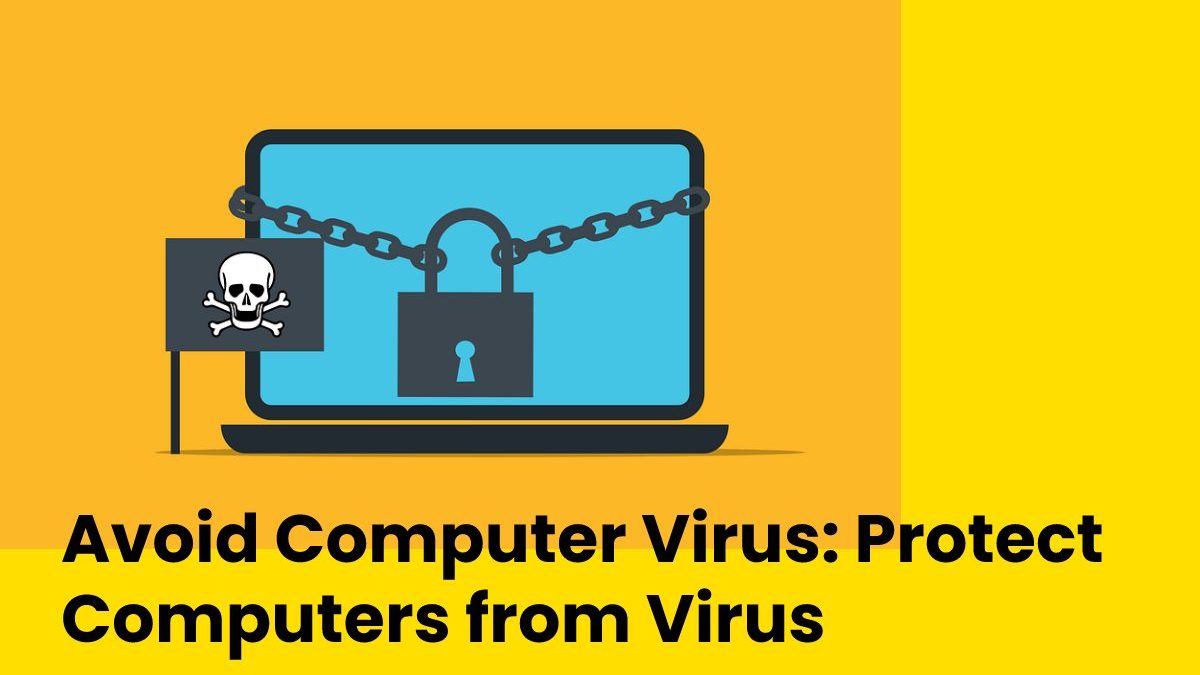Table of Contents
Protect Computer from Viruses

Avoid Computer virus: This Article is about different ways to Protect computers from viruses that harm your PC or allow some rivals to steal your important files or data. here are some tips/ways that u can protect your computer from virus:
Using Anti-Malware Applications
Using anti-malware applications Installing and keeping anti-malware applications up to date can help protect your computer from viruses and other malicious software (malware).
Microsoft Defender: Avoid Computer Virus
Microsoft Defender is a free antivirus program built into Windows and is automatically updated using Windows Update. There are also anti-malware products made by other companies that you can choose from.
Don’t Open Emails: Avoid Computer Virus
Don’t open emails from unknown senders with add-ons you don’t know – many viruses are attached to emails and spread as soon as you open the attachment. It’s best not to open attachments unless you’re expecting them. For more information, see: Protecting yourself from phishing.
Use a Pop-Up Blocker
Use a pop-up blocker in your internet browser. Pop-ups are small browser windows at the top of the website you visit. Although most of these programs are created by advertisers, they may also contain malicious or dangerous code. A pop-up blocker can stop some or all of these windows from appearing. Microsoft Edge installs pop-up packages automatically.
Microsoft Edge: Avoid Computer Virus
If you use Microsoft Edge, make sure SmartScreen is turned on: SmartScreen in Microsoft Edge helps protect against phishing and malware attacks by notifying you when a website or download site is flagged as unsafe. For more info, see How can SmartScreen benefit me stay safe in Microsoft Edge?
Also Read: Low-Code No-Code Platforms – Introduction, Benefits, Advantages
Windows SmartScreen Notifications
A note about Windows SmartScreen notifications: Be careful when running unknown apps downloaded from the Internet. Anonymous software can be hazardous. When you download and run an app from the Internet, SmartScreen uses app reputation information to warn you if the app is unsafe and potentially harmful.
Keep Windows up-to-Date: Avoid Computer Virus
Microsoft periodically releases special security updates that can help protect your computer. This update can help prevent viruses and other malware attacks by closing potential vulnerabilities.
Windows Update helps ensure that your computer receives these updates automatically, but you may need to restart your computer periodically until the updates are fully installed.
Also Read: Monitoring System – Lot Based Server Room Monitoring System
Use your Browser’s Privacy Settings
Some websites may try to use your personal information for targeted advertising, fraud and identity theft. All modern browsers have unique settings you can turn on to control what sites can see or do.
Avoid Computer Virus: Privacy Settings

Make sure User Account Control (UAC) enables. When you make computer changes requiring administrator-level permissions, UAC notifies you and gives you the option to accept the changes. User Account Control can help prevent viruses from making unwanted changes. To open UAC, tap the screen’s upper-right corner, then tap Search. (If you’re using a mouse, point to the screen’s upper-right corner, move the mouse pointer, and click Search.) Enter UAC in the Search box, and then click Change or Change UAC Settings.
Ensure you enable tamper protection: In Windows 10 and 11, we have a tamper protection feature that prevents unauthorized apps from changing your security settings. Many try to disable anti-malware or other security settings when installed to avoid virus and malware detection. For information on how to ensure this enable, see Prevent changes to tamper with security settings.
Also Read: Cryptocurrency Investing Game – 8 Tips for Mastering, and More
Avoid Computer Virus: Use Strong Protection
Using strong passwords and robust authentication methods can help protect your personal information.
Choose a Strong Password
Protect your devices and accounts from hackers by choosing challenging-to-guess passwords. Use a strong PIN with at least eight fonts and a combination of letters, numbers and special characters. Do not use a word easily found in a dictionary or any reference to personal information such as birth. Some hackers use programs that try every word in a dictionary and easily find personal information such as the delivery date. Try phrases to help you remember your password by using the first letter of each word in the term. For example, HMRC @ w2 – how much the shotgun can handle.
Choose a password for every online account you use: financial institution, social media or email. If you have passwords to remember, consider using a password manager to help create and protect unique passwords.
Use Strong Authentication
Social media, email and many financial accounts allow robust authentication methods. These methods may include using a fingerprint. A one-time-use code sent to a mobile device or other features ensures that the user must access the account.
Also Read: Recruitment Program – Introduction, Benefits, Types, and More
Conclusion
The development of the World Wide Web in the 1990s brought new possibilities and created new industries, but it also caused a net loss of connectivity. Countless spam email accounts have hack, and computer viruses are wreaking havoc on business networks. The new threat known as computer hacking broadens the definition of theft to include breaking into your computer, stealing personal information, tricking you into disclosing personal data, and using that data to access personal information, such as committing to rob and steal business secrets and bank accounts. Credit. , etc. and even the identity of people.
Also Read: Cryptocurrency Secrets – Top Cryptocurrency Secrets Unleashed

